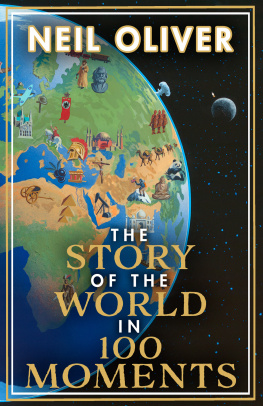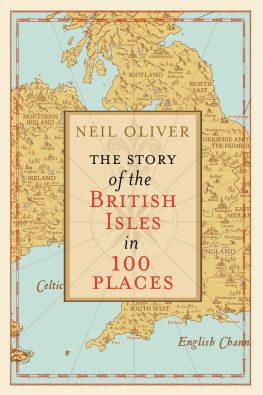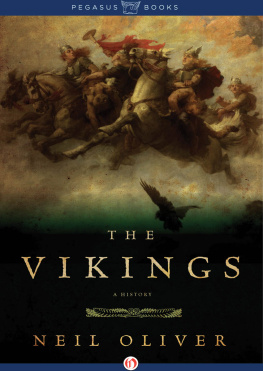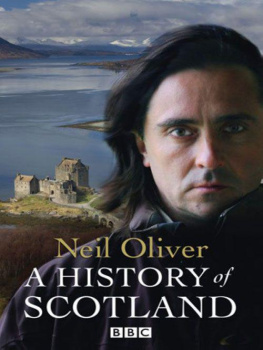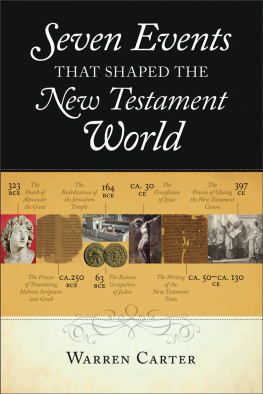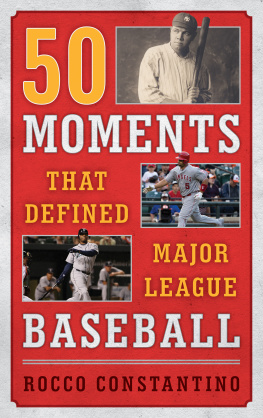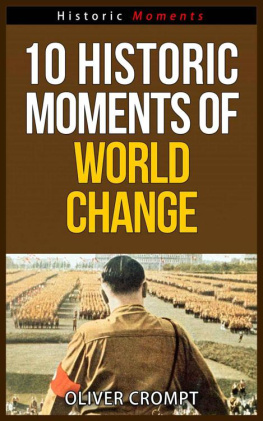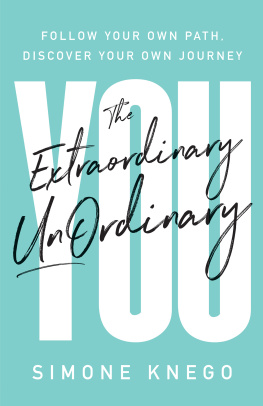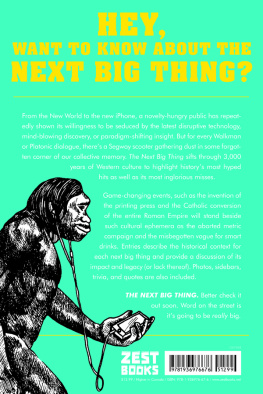About the Author
Neil Oliver was born in Renfrew in Scotland. He studied archaeology at the University of Glasgow and worked as an archaeologist before training as a journalist. Since 2002 he has presented various TV series including Coast (in the UK and in the Antipodes), A History of Ancient Britain, Vikings and Sacred Wonders of Britain. He is the author of several non-fiction books and one novel. He lives in Stirling with his wife, three children and two Irish wolfhounds.
Acknowledgements
The Story of the World in 100 Moments what on earth was I thinking? I was about two and a half moments into the writing of it when the scale of the task began to dawn on me. Soon enough I was struggling to keep my footing, so to speak, in danger of being swept away by the torrent of necessary names, places and dates. By the time I emerged at the end of it all, my mind was spinning.
Never in my life, therefore, have I been more grateful for being in the careful, attentive hands of the exemplary team at Transworld. Throughout the often dizzying complexities I was kept on solid ground by the editorial gifts of Susanna Wadeson, Daniel Balado, Helena Gonda, Katrina Whone and Sharika Teelwah. I really cannot sufficiently stress the importance and value of their contributions. In ways impossible to list or count, they ensured a cohesion and sense of order that might otherwise have been beyond me. To each and all, my grateful thanks.
Likewise the care shown by proofeaders Tom Atkins and Lorraine McCann, and indexer Gary Kirby, whose attention to detail always leaves me in humbled awe. Picture research, that crucial task of finding just the right image from among so many, was undertaken, and wonderfully, by Jo Carlill. The elegant page design is by Dan Prescott and production was skilfully overseen by Catriona Hillerton. Again, to each a thousand thanks. Further gratitude to Ella Horne, in charge of marketing, and to Tom Hill for looking after the publicity, upon which so much depends.
As one who has, contrary to all advice, always judged books by their covers, I have to say how delighted I am with the jacket design and illustration by Andrew Davidson and Beci Kelly. Yet more thanks, of course, to the excellent sales team of Tom Chicken, Laura Garrod and Emily Harvey, and also to the marvellous field sales teams.
Once again I am also grateful beyond words to my literary agent, Eugenie Furniss at 42 Management & Production, who has been holding my hand on the matter of books for more years than I can remember.
Lastly I owe more than I can ever say to my wife Trudi, for her endless support and encouragement, with a particular emphasis on those days, not infrequent, when I am seen to be feeling especially sorry for myself. I would be lost without you, Trudi, and you know it. Thanks finally to our children, Evie, Archie and Teddy, for being, as I have noted before and elsewhere, the point of it all.
Any and all mistakes in the text are mine and mine alone.
Today
is my last day writing this book. This is another moment in the story of my world, if not the world. Today is all there is. The past is gone, and the future does not exist. This moment, right now this is it. I read somewhere that Time is a magazine, which is true. At least you can hold a magazine, even keep a magazine. You cant do that with time with a small t.
In this moment I am thinking about my middle child my eldest boy. He is fifteen years old now but in the moment I am thinking about he is a little more than one, a lot less than two. In that moment we are in a caf near our home and he has been let down and disastrously by his nappy. We hurry home. I stand him in the bath and give him a shower, clean him up with warm water and soap. I carry him into a bedroom, and while I wrap him in a towel and stoop to dry him, skin pale as milk, he has his arms around my neck.
All out of the blue he says, into my ear, I love you.
I am taken aback. I free his arms from around me and lean back so I can look him in his eyes.
Why? I ask. It is a stupid question, but its out and away before I can think of a better one.
Because youre lovely, he says.
I replay that scene over and over, year after year. I think about everyone who has lived and died before me and us, about how everyones life has mattered to those who loved them and washed them in warm water and wrapped them in warm clothes. I think about thousands and thousands of years of love.
I think about my eldest child, my daughter, who is eighteen now. She was born in London, in Guys and St Thomas Hospital. Like the other two would be in time, she was an emergency C-section and she was handed to me to hold while the surgeon and nurses took care of my wife. I stood with her in my awkward arms, inside a little space made of four blue nylon curtains. As I swayed, leaning my weight on one leg and then the other, the light came and went across us. I looked into her eyes, so fixed upon my own, and knew that everything was different and for ever.
I think about my youngest boy. He is thirteen. A few days ago he was in hospital for a routine procedure. I was with him while the anaesthetic took effect. I looked into his eyes while the gas did its thing. I watched him being switched off. I was with him again in the recovery room, while he came back on, dreamy and lost. I knew then, as I have always known, that he and his brother and sister and their mother are my whole world.
At the time of writing we are in a second year of lockdown, on account of a pandemic that is not at all like the one in 1918. Their mother and I spend many moments hours and days wondering what our childrens futures will be.
I look back over the words I have written for this book, from page one to this one, and know that while all of its stories are interesting to me, these last moments recounted here, these moments with my children, are the story of my world.
1.
Enheduanna composes a hymn
In so far as a story of the world can have a beginning, let it begin with Enheduanna, the first named poet. In the moment in question she is in the temple dedicated to Inanna, goddess of love, beauty and war, and also to Innanas husband, Nanna, god of wisdom and the moon, in the city of Ur, in the land of Sumer, Mesopotamia. She is a woman of high status and the temple is her domain. Either she is a daughter of King Sargon the Great, founder and ruler of the Akkadian empire that has Ur as its capital, or else someone he values most highly for some other reason. There is a great deal we cannot know about High Priestess Enheduanna but what survives is still a sketch of a life.
By the time she walked the earth, 4,300 years ago, humankind had come a long way, a way so long as to be unimaginable. We are the planets youngest apes and that way was walked first by others, the same and not the same; other apes upright on two legs; other apes that came together as families, tribes and clans; others that walked into caves tens of thousands of years ahead of Enheduannas time and by the light of torches there made art so fine it would never be bettered, not by any ape not by Leonardo, or Michelangelo, or Picasso.
By the time of Enheduanna, Ur was a grand city and home to tens of thousands. Sumer and Mesopotamia, literally the land between the rivers (Tigris and Euphrates), was where farming was first adopted as a way of life. Tending fields clearing, irrigating, sowing, weeding, harvesting demanded collaboration and cooperation by the many. It was a life of repetitive toil but it promised food enough for all. Freed from the dangerous and unpredictable venture of hunting and gathering, the farmers of Mesopotamia worked together to build, of mud bricks baked hard in the sun, villages and towns and also cities like Ur. Strongmen dominated, controlling the stores of food and its distribution. Around them gathered warriors, keen to curry favour. Within the wider population specialists were free to refine and exploit their skills making tools for work and war, weaving fabric for clothes, shaping gems for adornment in return for food from the farmers and favour from the strongmen. In time there were more, artists, craftsmen, builders and the like, ready to glorify and aggrandize the growing settlements and their people. This was the birth of civilization, and those that learned its benefits would never look back.

